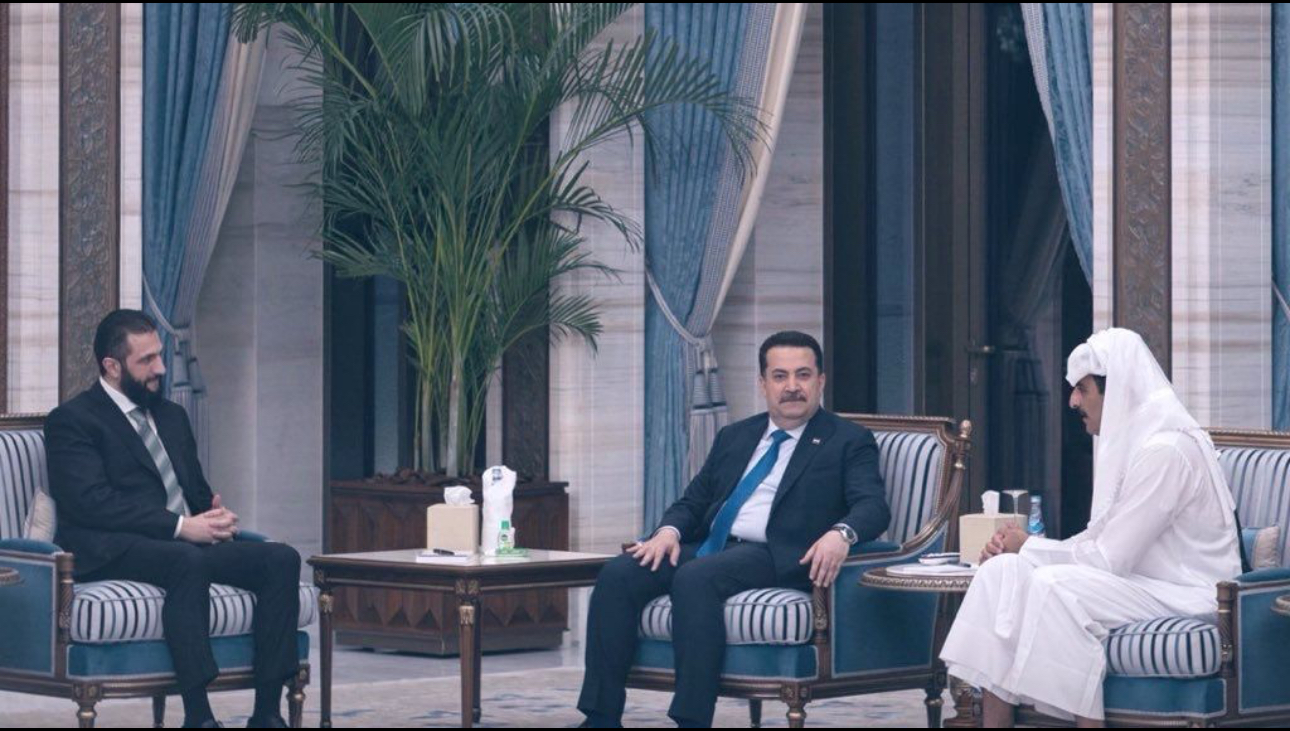After months of economic isolation, Iraq appears ready to reconsider its stance toward Syria’s new government. A landmark meeting between Iraqi Prime Minister Mohammed Shia’ Al-Sudani, Qatari Emir Sheikh Tamim bin Hamad Al Thani, and Syrian President Ahmed Al-Shara has raised hopes for normalized relations. The talks, which addressed border reopening, security cooperation, and economic revival, come amid growing concerns about Israeli military activity in Syria and ongoing regional stability challenges.
Strategic Realignment in Regional Relations
The high-level summit marks a potential turning point in Iraq-Syria relations, which deteriorated significantly when Baghdad closed borders and suspended trade following Syria’s recent governmental transition. This diplomatic freeze inflicted considerable economic damage on Syria’s already fragile economy.
Prime Minister Al-Sudani’s participation signals Iraq’s willingness to reassess its approach, driven largely by rapidly evolving security dynamics in the region. The Iraqi leader expressed particular concern regarding reports of Israeli military presence on Syrian territory, viewing this development as a potential threat to regional stability.
The meeting established groundwork for renewed cooperation, with discussions focusing on border management, security coordination, and mechanisms to revitalize trade that would benefit both nations’ economies. Diplomatic sources indicate that while no immediate reopening was announced, technical committees may soon begin evaluating logistics for resuming cross-border activities.
Security Concerns and Counter-Terrorism Efforts
Al-Sudani delivered a clear message regarding Iraq’s expectations for Syria’s anti-terrorism commitment. He specifically called for “serious and practical measures” from President Al-Shara’s government in combating ISIS, which continues to pose a security threat across the region despite territorial defeats.
The Iraqi Prime Minister emphasized that any meaningful improvement in bilateral relations would depend on demonstrable progress in this area. Security experts note that ISIS cells remain active in border regions, making counter-terrorism cooperation essential for both countries.
This security-first approach reflects Baghdad’s priority of preventing terrorist infiltration while simultaneously working toward normalized diplomatic and economic ties. Regional analysts suggest this balanced strategy aims to address immediate security concerns while gradually rebuilding trust between the neighboring states.
Human Rights and Religious Diversity
A distinctive feature of the discussions was Al-Sudani’s emphasis on protecting Syria’s diverse religious and ethnic communities. He articulated Iraq’s “firm and principled position” advocating for comprehensive political solutions that preserve this diversity.
The Iraqi leader specifically addressed recent violations against Syria’s Alawite community, highlighting the importance of safeguarding holy sites and upholding human rights standards. This focus reflects Iraq’s own challenges with sectarian divisions and its growing diplomatic stance as a regional mediator.
The Qatari Emir’s presence added significant weight to these discussions, potentially offering financial support for reconstruction efforts if governance and human rights benchmarks are met. Sheikh Tamim’s involvement suggests a broader regional interest in Syria’s stability and reintegration into the Arab diplomatic sphere.
Al-Sudani concluded by stating that tangible progress on these fronts could establish a foundation for strengthened bilateral relations and enhanced regional cooperation, ultimately contributing to greater stability and mutual prosperity across the Levant.


